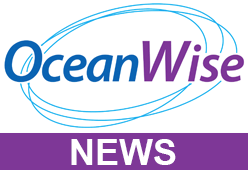We hosted our 8th Annual Data Management and GIS Workshop entitled ‘Trust in Data’ at the School of Economic Science in London on 26 November 2019. The event was well attended and this year we were treated to a particularly strong line up of speakers offering discussion and debate on topics high on everyone’s list. Click below for the presentations from the day:
James Cutler, CEO of emapsite based in Farnborough, started the day off with a thought provoking talk about open data and the ‘unintended consequences’ of its use to not only build personal profiles to support marketing activities and target consumer targeting but also to provide information for less well-meaning purposes as well. Worryingly open GI data is fuelling this revolution in that it provides the ‘where’ element!
Chris White, from the National Cyber Security Centre (NCSC) reinforced the organisations’ mission to Pursue, Prevent, Protect and Prepare for cyber-crime eventualities. We, as individuals and employees, need to be ‘cyber-ready’ as there is a very high risk that organisations will be targeted. We can help ourselves by reading the small business guide that NCSC provides (links are provided on the Workshop 2019 presentations webpage); compile a weekly threat report, have a response and recovery plan in place ahead of any actual attack. A couple of take-home messages; the strength of ‘passwords’ used to protect documents, software and data and the need for them to be at least 13 characters long and a plea to switch on password manager on your computer and activate the ‘screen lock’ capability.
KPMG was represented by Pete Edmonds who spoke about the strong linkage between Business Intelligence and GIS. He asked ‘has GIS had its day?’ Potentially on its own it has! GIS is now inextricably linked to Business Intelligence as the ‘application’ is now the key requirement rather than technology. The ‘golden triangle’ of BI is now firmly linked not only to data visualisation, but also data methodology and data quality. In effect BIGIS!
OceanWise’ CEO, Mike Osborne built further on the subject of data quality and its ‘fitness for purpose’. Data has many facets; its accuracy and precision, legitimacy and validity, reliability and consistency, timeliness and relevance, completeness and comprehensiveness, availability and accessibility as well as its granularity and uniqueness. For example, Accuracy refers to the closeness of a measured value to a standard or known value whereas Precision is independent of accuracy. Quality can be inherent and / or system dependent. These terms are often misunderstood as they are not mutually inclusive. OceanWise provide training courses for marine professionals at all levels – please visit our course page for more details.
Dr. Matt Loxham; Future Leader Fellow in Respiratory Biology and Air Pollution Toxicology in Medicine at Southampton University; spoke about increasing pressure to monitor air quality and took us through some research that him and his team have done at Southampton Port. This has become more urgent recently due to the increase in larger cargo and cruise ships entering the port close to a highly populated area in addition to the emissions from other vehicles, planes and trains. The debate around the role large ships play in emissions and pollution is still not yet fully understood. Matt showed the way in which particulates are measured, analysed and their effects recorded both isolation but also when a mixture of pollutants are emitted. Studies continue to gain a far greater understanding of the behaviour of different fuels, particulates and pollution levels and their effects on human health. Watch this space for further developments.
The afternoon session comprised two presentations by Julian Rickards (3D at Depth) and Matthew Brannan (EIVA) about the growing role of high resolution underwater Lidar technologies to accurately locate and survey assets, wrecks and plant on the seabed or suspended in the water column. With the UN Seabed 2030 programme now underway, this new technology can offer a cost effective and accurate platform to support its aims and ambitions.
The day ended with a Q&A session with OceanWise staff. Feedback has been extremely positive.
Back to News



